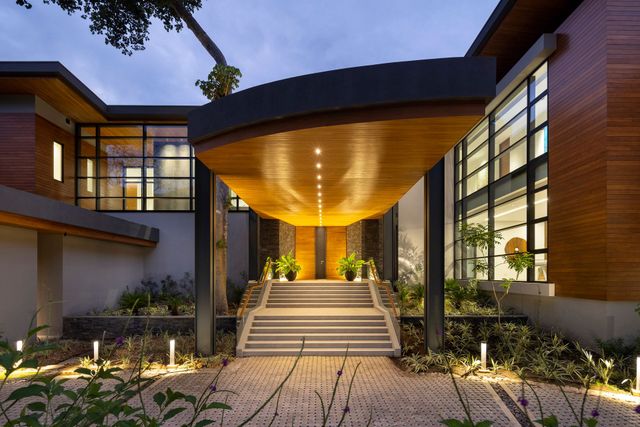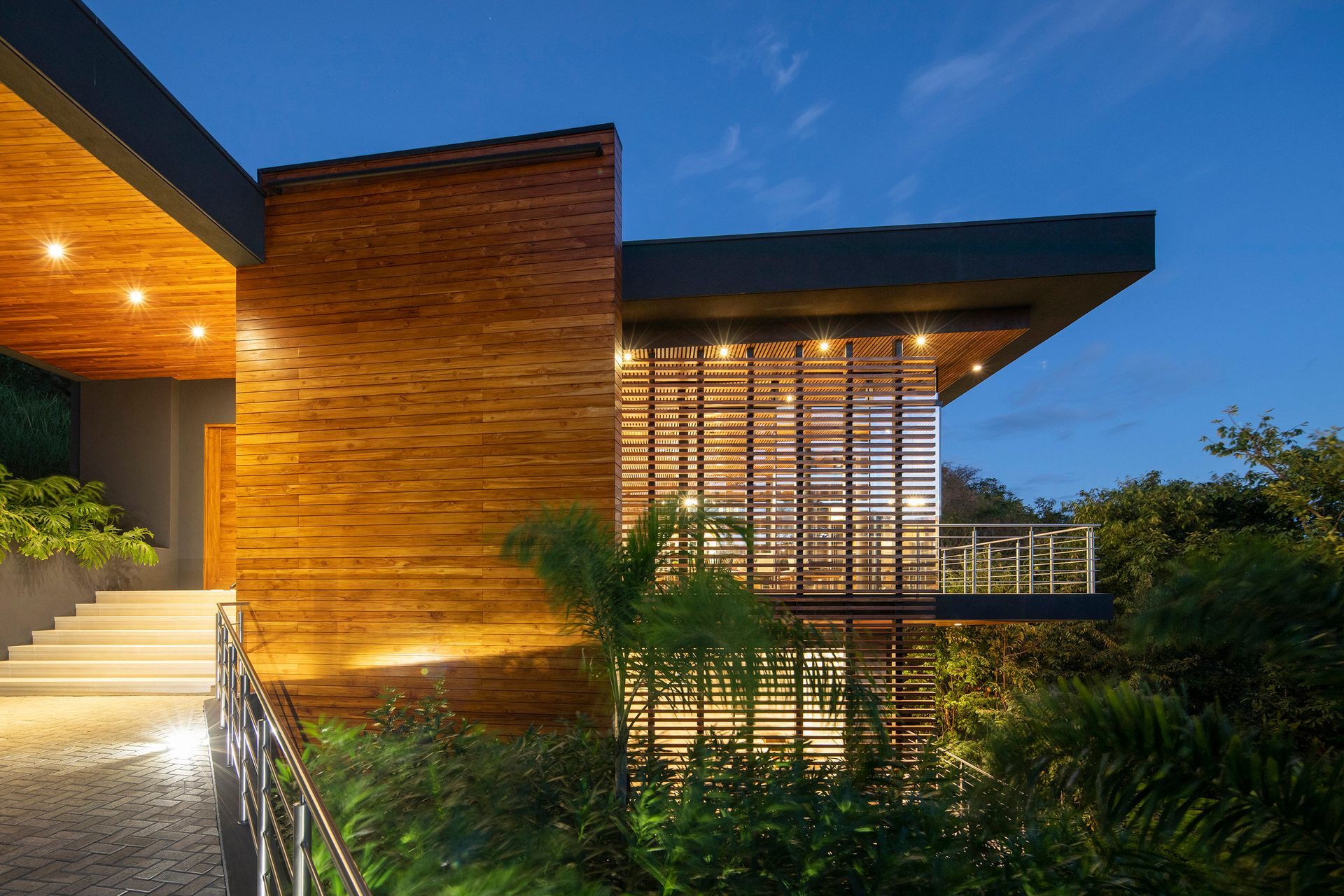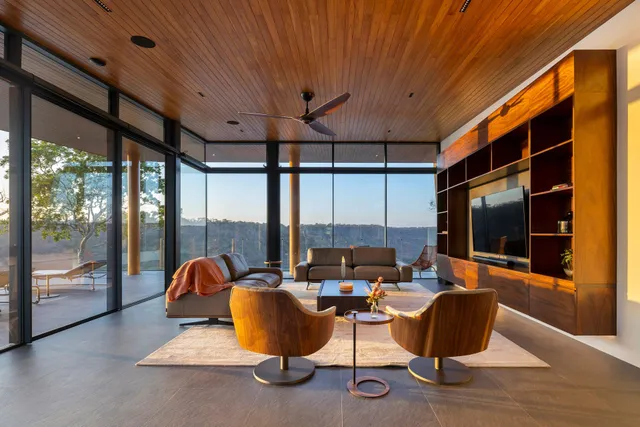blog
The Importance of Privacy in High-End Living Spaces
In the world of luxury living, privacy is not just a luxury—it’s an essential element of creating a truly exclusive, comfortable, and secure environment. High-end homes, whether in sprawling estates, penthouses, or secluded villas, are designed with a primary focus on offering the residents a space that feels private, serene, and free from intrusion. In today’s interconnected world, the need for privacy in high-end living spaces has never been more important. Privacy not only enhances personal comfort but also contributes to safety, well-being, and the overall luxurious experience.
This article will explore the significance of privacy in luxury real estate and discuss various ways homeowners and designers can prioritize it in the design and layout of high-end homes.

1. Privacy as a Core Element of Luxury Living
Luxury living is inherently about comfort and indulgence. However, one aspect that often separates high-end homes from typical residences is the sense of privacy they offer. Privacy in high-end living spaces serves several purposes:
Personal Freedom and Comfort
In a luxury home, residents want the freedom to enjoy their space without the fear of being observed or disturbed. Whether lounging by the pool, hosting a private dinner party, or simply relaxing in the comfort of their home, privacy allows individuals to live life on their terms. This feeling of security and exclusivity is a crucial factor in providing a high standard of living.
A Safe Haven
Privacy also directly correlates with security. The ability to retreat into a private, secure space away from the outside world ensures the homeowner feels safe. In urban settings, especially, this sense of refuge is invaluable, providing peace of mind when it comes to both physical security and mental well-being.
Exclusive and Distinctive Living
The most exclusive properties offer more than just opulence—they provide an escape. The ability to enjoy a secluded, tranquil environment within the confines of one’s home is something that cannot be replicated in average residences. It’s this exclusive nature of privacy that makes high-end living spaces truly luxurious.
2. Design Elements That Promote Privacy
Creating a private sanctuary within a high-end home involves more than just the placement of walls and windows. It requires a holistic approach to design that prioritizes seclusion, sound insulation, and sightlines. Below are several key design strategies to ensure privacy in luxury living spaces:
Strategic Placement of Rooms
The layout of a luxury home plays a crucial role in providing privacy. In a sprawling residence, bedrooms, bathrooms, and personal spaces should be placed away from the high-traffic areas of the home. Separating more public spaces, such as living rooms, dining areas, and entertainment zones, from private areas helps create distinct zones of privacy.
For example:
- Master suites are often located in private wings of the house or on separate floors to ensure complete privacy.
- Home offices and studios are often secluded to offer a space for work or creativity without distractions.
- Guest suites are designed to be distant from the homeowner’s personal areas, maintaining a sense of privacy even when entertaining guests.
Privacy through Landscaping
Landscaping plays a pivotal role in enhancing privacy. High-end homes, especially those with large outdoor spaces, often use tall hedges, privacy walls, or dense foliage to create natural barriers. These features block the view from neighboring properties, ensuring that the home remains secluded and intimate.
- Lush gardens and tree canopies can also serve as protective screens, providing both aesthetic value and privacy.
- Vertical gardens or green walls are an increasingly popular solution for privacy in urban environments, particularly in areas where traditional fences or walls are not feasible.
Fences and Gates for Security
While privacy is essential, high-end homes often emphasize both privacy and security. Gated entries, security fences, and tall gates provide an added layer of protection against intruders while also ensuring that no one can easily see into the property. Whether in a suburban estate or a penthouse apartment, ensuring that boundaries are clearly defined reinforces a sense of seclusion.
In addition to their practical role, gates and fences can be designed to complement the home’s aesthetic. Whether ornate iron gates or modern minimalist fences, these elements can enhance the beauty and security of the property.

3. Architectural Techniques for Maximizing Privacy
While external factors such as landscaping and walls contribute to privacy, architectural techniques are just as important in providing seclusion within the home. Through the use of strategic design, high-end properties can achieve both visual and acoustic privacy.
Soundproofing and Acoustic Privacy
Luxury homes prioritize acoustic privacy as much as visual seclusion. Soundproofing techniques ensure that the interior of the home is free from unwanted noise, whether from outside traffic, neighboring properties, or even other parts of the house.
- Soundproof windows and walls: Installing acoustic glass windows and thick, soundproofing walls ensures that conversations, music, and noise are contained within specific areas of the home.
- Thick carpeting or flooring: Soft flooring materials such as plush carpets, rugs, or even acoustic panels can reduce noise traveling between rooms or floors.
Strategic Use of Windows and Glass
Large windows and expansive glass walls are a signature element of modern luxury homes, offering stunning views of the surroundings. However, these open, airy designs can also compromise privacy if not carefully planned.
To strike the right balance between openness and privacy, smart glass or tinted windows can be used. These windows provide natural light and views while limiting visibility from the outside. Additionally, privacy curtains or electronic shades can be programmed to adjust automatically to maintain seclusion when needed.
Secluded Outdoor Living Areas
Outdoor living spaces, such as patios, gardens, or pools, are integral to luxury living but often require thoughtful design to ensure privacy. High-end homes incorporate elements like covered pergolas, secluded courtyards, and outdoor structures that allow residents to enjoy their gardens or pool areas without prying eyes.
- Infinity pools and jacuzzi areas can be built to overlook scenic views while still maintaining privacy through strategic placement or landscaping.
- Outdoor kitchens and dining areas can be designed to create a sense of intimacy, using natural features like tree lines or privacy screens to shield from neighboring properties.
4. Technological Solutions for Enhanced Privacy
With advancements in home technology, luxury residences are increasingly incorporating smart systems that provide a higher level of privacy and security. These systems offer the convenience of managing privacy at the touch of a button, while also giving homeowners peace of mind.
Home Automation for Privacy
Modern homes are increasingly equipped with home automation systems that can control aspects such as lighting, temperature, security, and privacy. Automated blinds or shutters, for example, can be adjusted remotely to ensure privacy at specific times of day or when homeowners are not present.
- Security cameras and motion detectors can be integrated into the home’s overall smart system, alerting homeowners to any potential security breaches.
- Automated lighting systems can also simulate occupancy, making it difficult for outsiders to determine whether anyone is home.
Smart Security Systems
Integrating advanced security features into a luxury home further elevates the level of privacy. From biometric access systems to smart locks and remote monitoring, technology ensures that only authorized individuals have access to the home.
5. The Psychological Benefits of Privacy in High-End Living
Finally, privacy in a luxury home goes beyond just physical comfort and security—it plays a significant role in the psychological well-being of its inhabitants. People naturally desire spaces where they can relax and be themselves without the fear of judgment, intrusion, or disturbance.
Mental Health and Well-Being
A sense of privacy allows for greater peace of mind, reducing stress and promoting relaxation. In a world where people are constantly connected to others, having a private, secluded space is an important way to recharge and restore mental clarity. Whether it’s escaping into a peaceful library, taking a bath in a private spa, or simply sitting on the balcony with a good view, privacy supports emotional and mental wellness.
Enhancing the Luxury Experience
The luxury of privacy is about more than just seclusion—it’s about creating a sanctuary where homeowners feel fully at ease, free from the pressures of the outside world. The ability to enjoy one’s home without worry or concern is what makes luxury living spaces feel truly special.

Conclusion
In luxury real estate, privacy is more than a mere feature—it’s a cornerstone of the high-end living experience. From the strategic design of the home to the careful use of materials, technology, and landscaping, creating a private, secure sanctuary is essential for maximizing comfort, safety, and luxury. Whether in a sprawling estate, a penthouse, or a waterfront villa, privacy ensures that homeowners can enjoy their spaces to the fullest, all while maintaining a sense of exclusivity and peace. When done right, privacy is what elevates a luxury home into an unparalleled experience.


